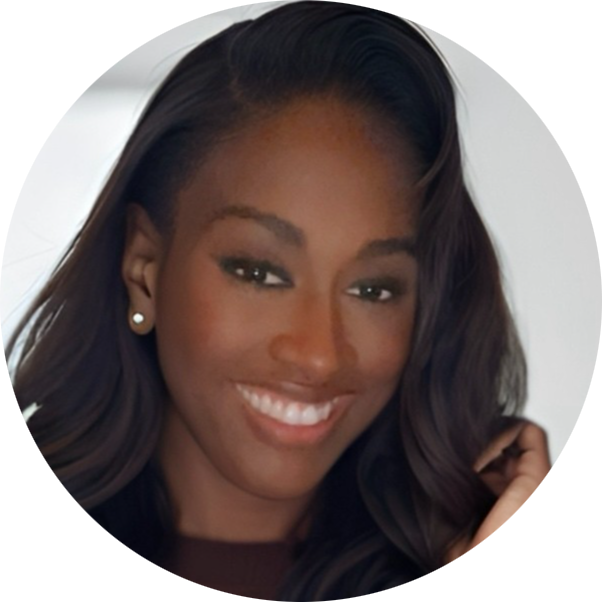‘I have a goal to be the most transparent HR person alive’: Hinge’s CPO on HR stereotypes

The HR function has long been undergoing a revitalization that puts people leaders at the same level as the rest of the C-suite.
That’s thanks to chief people officers and chief human resources officers who are breaking down the stereotypes that HR is scary or bad, as well as a department that costs the business money, rather than makes it. That requires someone who is intentional about creating a welcoming environment every day. One CPO who is working toward that goal is Angel Franklin at Hinge. Franklin has worked in human resources her entire career with executives roles at EY, Kellogg and Tesla.
Since joining Hinge in 2022, Franklin has helped grow the business from 58 employees in March 2020 to almost 300 globally as of March 2024, while preserving the company’s culture deeply rooted in authenticity, courage and empathy.
We spoke to Franklin to better understand how she approaches her role as CPO.
Answers have been edited for clarity and flow.
How did you help 5x the size of the company?

We spent time being really thoughtful about our strategy and what we’re trying to achieve at Hinge, using that time to plan out our workforce. We sit down, do strategic planning and then really block and tackle which roles we need and stack the team against them. For example, when I first joined there was an opportunity to look at the way we were compensating people. One of the things I did early on was go through an exercise to proactively review everybody’s compensation levels and make adjustments that actually increased our labor cost a bit. But it was the right thing to do, the fair and honest thing to do. Now we take an equitable look every year.
We don’t wait for people to come and ask us to do that, we are actively going out and saying ‘Hey, we’re seeing changes in the market, we’re going to adjust to make sure that you’re at a competitive compensation.’ It’s one of the things that I’m really proud of.
What’s probably even more important is the type of people that we’ve been able to bring into Hinge. With rapid growth in lots of organizations, you’re just trying to get the talent that can fill the gap.
We have the values of authenticity, courage and empathy. If I think about when companies talk about values in other places, you have the values up on the wall and people say them [but] they may or may not actually exist.
But at Hinge, it’s really how we live and how we interact with people. During the interview, we ask people more deeply: Why us? Why here? Why now? Our culture interview is getting a feel for the people vs. just the words on the wall.
How does Hinge’s HR department stand out amid the HR landscape right now?
In a lot of companies, HR is like the gatekeeper of stuff. I have this goal to be the most transparent HR person alive. Oftentimes I’ll tell people in interviews, you can ask me my blood type and I will tell you. I say that a little bit tongue in cheek, but I say it often because I want people to feel a sense of connection and safety.
I think about what it was like for me, growing up and coming into the workforce as a first-generation college graduate, not having been exposed to things and constantly trying to figure my way through the professional world, having some stumbles and falls. I don’t want people to feel that. So I really think about creating an environment where people can be their authentic selves where I can be transparent, and help people know how to get there.
It’s been an extraordinary experience. I show up how I want, talk about the things I want and I think our employees feel empowered to do the same. With the compensation example, Hinge has always given me a seat at the table. Thinking about what it would look like to not have high turnover, to be able to retain our best talent, they were all rallied behind that.
Is there still a lot of work done to get rid of HR stereotypes?
What allows people to build trust is really focusing on their unique needs, which means you have to be thinking about creating space for them to be themselves, creating space for them to be honest with what their needs are. We all need different things to grow, learn, develop, and achieve. None of us are a monolith. If you are perceived as a block and a barrier, then people are not going to do their best work and have a fulfilling experience. I could not imagine going back to a company that does that type of HR. It just does not compute anymore. It’s just misaligned with who I am.
There’s so much discussion about leveraging technology to improve processes, how are you doing that?
The way we have looked at AI, and how we continue to think about it as we build it out, it’s really how do we help our people do the best work that they can do. AI is never going to replace the humans that we have here, but it can help augment and support them and do their jobs more easily.
I do use it myself. Writing a job description that took me forever to manually do, I can do in just a few seconds and be able to get at least a 70% draft. That is something that’s exciting. Most of the work that I do, and the way we think about this experience at Hinge, is about how do you create this environment where people feel a sense of belonging, connection, empowerment and be inspired to do their greatest work.
I know there is a lot of fear associated with AI, so I’m asking how do I help our employees continue to feel that psychological safety and trust while also bringing in the right tooling and help to build their capabilities. As we think about that, it’s being done in partnership with our employees, not happening to them, but with them.